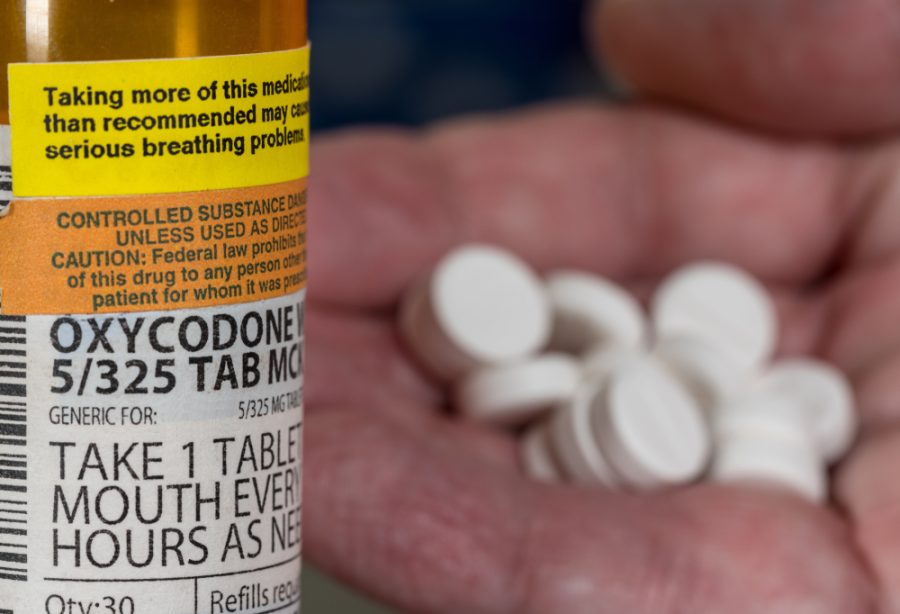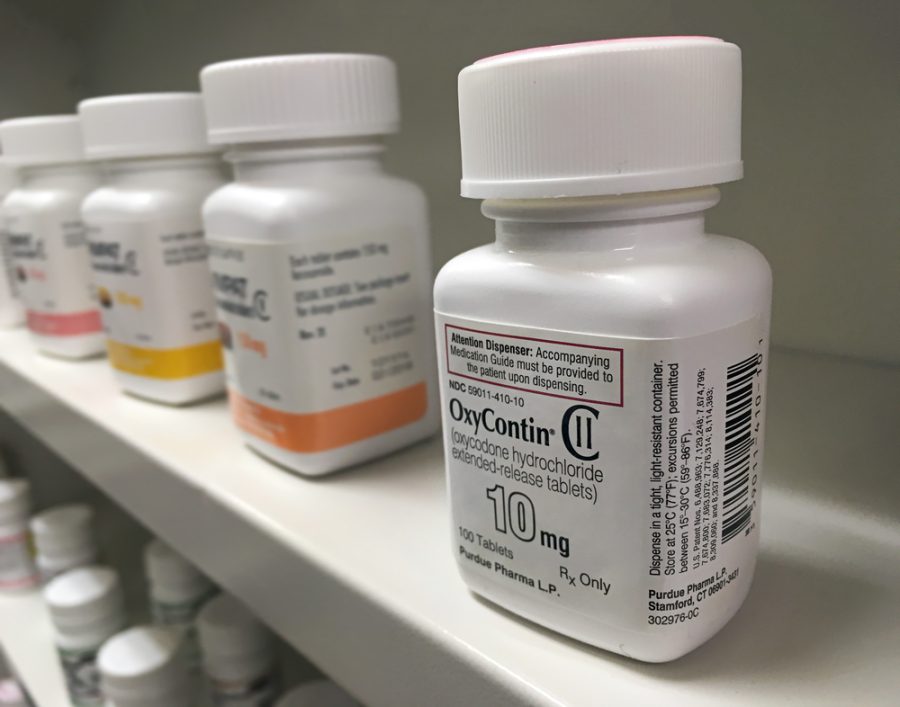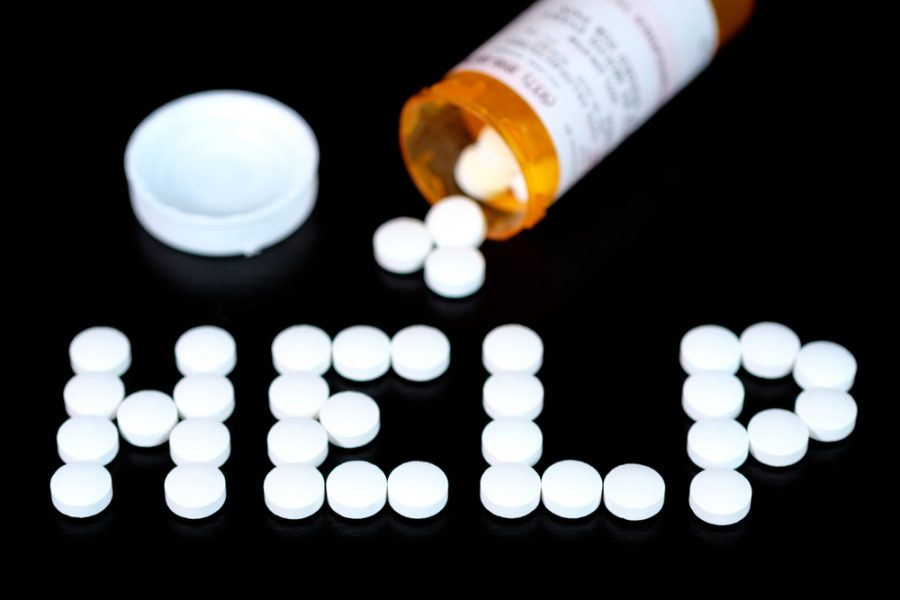
It’s hard to believe now, but oxycodone was originally released under the premise that it was a safer alternative to other opiates. However, the opioid epidemic has proven this is clearly not the case. With over 200,000 fatal overdoses attributed to oxycodone and other painkillers, this drug has had a devastating impact across the country.
What makes oxycodone dangerous is that many people started using the drug because doctors prescribed it to them. Oxycodone addiction is a serious medical disorder than needs treatment by healthcare professionals and the right support system. Understand the dangers of addiction and how you can get help through oxycodone addiction treatment in this guide.
Table of Contents
What Is Oxycodone?
Oxycodone is a painkiller derived from the opium poppy—the same as heroin and morphine. Doctors typically prescribe it for pain relief, although some users may experience euphoria and other side effects that can encourage dependency on the drug. Note that oxycodone is addictive even if prescribed for legitimate reasons. For this reason, everyone should use extreme caution with the substance. Major pharmaceutical oxycodone brands include:
- OxyContin: oxycodone
- Percocet: oxycodone/acetaminophen
- Percodan: oxycodone/aspirin
- Tylox: oxycodone/acetaminophen

Even prescribed use of oxycodone can lead to dependency. In fact, people often develop addictions after being prescribed oxycodone for real reasons. Those abusing the drug are at an even higher risk of addiction. Regardless of how addiction starts, dependency grows over time, and people need more and more of the drug. This often leads to overdoses, which can be fatal. Other overdose symptoms include:
- Cardiac arrest
- Cold skin and sensitivity
- Coma
- Inability to breathe
- Low blood pressure
- Reduced appetite
- Reduced breathing function
Why Do Doctors Prescribe Oxycodone?
There’s a lot of debate over oxycodone prescription practices in America. However, the general consensus is that that doctors over-prescribed the medication for decades. Oxycodone has been prescribed to patients coping with moderate to severe short-term pain. In addition, patients with long-term pain were often prescribed slow-release formulations. Finally, doctors may prescribe it to people who have suffered an accident or undergone recent surgery.
Oxycodone’s manufacturers proposed it to be a safer alternative to opioid medications. For those suffering from severe pain, it was marketed to be less risky and more effective for pain management. However, has proven to be extremely dangerous and addictive, and it is the primary contributor to the opioid crisis. Nowadays, healthcare professionals have devised alternative therapies and better controlled pain management therapies, but decades of unregulated abuse of oxycodone has taken its toll on people.
Why Is Oxycodone Prone to Abuse?
The US Drug Enforcement Administration has reported individuals have issues oxycodone since the 1960s. The drug has the same potency as morphine, which makes it highly addictive. Moreover, people who are addicted to heroin or methadone often turn to oxycodone to manage the withdrawal side effects, which in turn leads to addiction.
Typically, individuals abuse the drugs in three ways. First, they may orally abuse the drugs by chewing the pills to induce effects more quickly. Further, it may be intranasally abused through crushing the pills and snorting the powder to send the drug straight to the bloodstream without passing through the kidneys. Alternatively, some individuals may dissolve crushed oxycodone power in water and then inject it via a syringe.
All of these are warning signs of abuse. If you or anyone you know has exhibited this behavior, seek help immediately. Finally, although these are all signs of abuse, individuals can develop oxycodone dependence even when taking the drug as prescribed by a healthcare professional. Dependence becomes less likely when you take the drug as prescribed, but it is always a danger.

What Are the Warning Signs of Oxycodone Dependence and Addiction?
Warning signs of abuse and addiction are similar to other drug addictions. Symptoms of oxycodone abuse include:
- Sweating
- Nausea
- Headache
- Anxiety
- Depression
- Fatigue
- Irritability
- Confusion
- Depersonalization (feeling as if your thoughts and actions aren’t yours)
Warning signs of long term oxycodone abuse are very serious and include:
- Heart failure
- Body pains and cramps
- Severe sleep disruptions
- Constipation
- Increased spinal fluid pressure
- Death
It’s important to recognize certain behaviors and actions as this may be a sign of oxycodone addiction such as:
- Wanting to stop using oxycodone, but being unable to
- Withdrawing from social or work activities to use oxycodone
- Having financial problems related to oxycodone use
- Abusing other substances to manage oxycodone addictions
This isn’t an exhaustive list of effects or behaviors. In fact, some individuals may be “high-functioning” and not exhibit any of these symptoms. This is why people need to keep an eye out for any changes in themselves or their loved ones who are using oxycodone. Ultimately, any use of oxycodone—prescribed or illicit—is highly dangerous. In any circumstance, it can be extremely helpful and possibly even life-saving to enter a rehab program when dealing with oxycodone addiction.
What Does Oxycodone Addiction Treatment Entail?
Since oxycodone dependence and addiction are so severe, it’s generally not safe for individuals to quit “cold turkey.” Withdrawal side effects can be severe and dangerous, so it’s generally advised for individuals to undergo a medication-assisted detox program. Oxycodone treatment involves an integrative approach, combining counseling, medial supervision, medication, alternative therapies, and nutrition.
Patients and their loved ones should bear in mind that addiction is a serious medical disorder and needs to be treated accordingly. The overall goal of treatment programs is not only to stop drug use, but also to reduce dangerous behaviors associated with use. Oxycodone abuse centers help people learn how to live healthy, sober lives, as well as be able to identify and manage triggers.
Achieving Sobriety in Oxycodone Addiction Treatment
Addiction to oxycodone is dangerous and often life-threatening. However, it is possible to overcome it and achieve lasting sobriety. Everything begins by speaking to licensed healthcare professionals. When looking for the best rehab facility, look for treatment centers offering the following:
- Integrative approach that blends care methods
- Strong interdisciplinary team of doctors, clinicians, social workers, counselors, and support staff
- Commitment to individualized care regimens
- Support from peer groups, families, and community
- Group and individual therapy
- Mental health support
- Comfortable facilities with medical supervision
- Residential treatment center setting
Substance use disorder is difficult to overcome, but you can recover with the tools you’ll get at drug rehab. You will start with a screening where a care team will put together a plan tailored to your needs. From here, you will enter a detox program that will help you start your recovery on the right foot. In the next stage of rehab, you will utilize different therapy methods to build the wellbeing you need to beat addiction and lead a healthy life.
We Can Help You
The Christian Recovery Program at The Blackberry Center in St. Cloud, Florida specializes in dealing with the rooted issues underlying substance use, abuse, addiction, and codependency. While we are committed to a Christ-centered treatment approach, we also utilize doctors and clinical specialists to complement that faith-based care.
We hope to provide a safe atmosphere where people feel the love of Jesus and each other. In addition, our clinical staff have the highest qualifications to treat trauma and deeper-rooted issues. Reach out to us today by calling 1-844-232-6151 or filling out this contact form.
The post Oxycodone Addiction Treatment: What You Need to Know appeared first on Christian Recovery Program.
Source
Original Author: Get Christian Recovery

